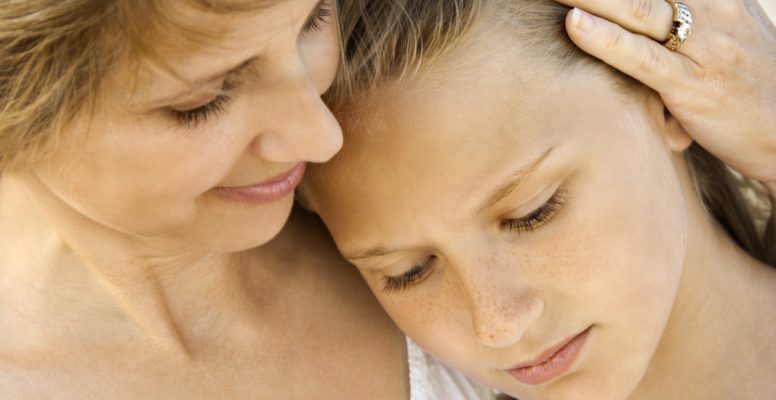
Anxiety: How to Help your Teen Cope
Written By: Antonina Taranova, Trainee at ACS, On-Campus Counseling Program
what should parents know
about anxiety? One in five adolescents may develop an anxiety disorder over the span of their adolescence. Such anxiety disorders can have a dramatic impact on the daily life of children and constitute a risk factor for more severe mental disorders in adolescence and later in life, such as depression and substance use disorders. Studies show that girls are at higher risk of developing anxiety disorders due to biological and social factors.
While anxiety is a normal human reaction to stress in our lives, it may become a problem when a child feels worried or panicked in a non-stressful situation. In this case, anxiety can affect a child’s daily behavior and thoughts, interfering with their home, school, and social life. Below are some of the symptoms of anxiety that your child might complain about:
- Feeling “on edge,” worried all the time, or having many negative thoughts
- Having trouble sleeping
- Finding it difficult to concentrate
- Trembling, shaking, being dizzy
- Heart beating really fast
- Sweating more than usual
- Stomach cramps and/or upset stomach
- Low appetite
- Feeling overwhelmed
All children and young people get anxious at times; however, if these symptoms occur every day and persist for long periods of time, your child might need additional support.
How can parents help their children with anxiety?
- Explore with your child what they are feeling worried about and help them recognize those anxious feelings. If triggers are identified, the child can become aware of when anxiety is coming and ask for help or use learned coping skills, such as breathing and grounding techniques.
- If anxiety is occurring in the moment, try to sooth the child by touch (if a child is comfortable with hugs) and by saying that it will be okay and that the anxiety will pass like a wave.
- Practice positive thinking with your children.
- Help them establish and maintain a healthy daily routine with good sleeping habits, calm bedtime routines, limited screen time in the evenings, healthy diet, and regular exercise to reduce the levels of stress hormones in their system.
- Seek professional help if anxiety symptoms continue to interfere with your child’s life.
How is anxiety treated?
The most common types of treatment for anxiety include counseling, cognitive behavioral therapy (CBT), and medications (for severe anxiety that does not get better). If you think your child may need counseling for anxiety, reach out to ACS’ Intake Line at 650.424.0852 x108.
References:
de la Torre-Luque, A., Fiol-Veny, A., Balle, M., Nelemans, S. A., & Bornas, X. (2019). Anxiety in early adolescence: Heterogeneous developmental trajectories, associations with risk factors and depressive symptoms. Child Psychiatry and Human Development.
